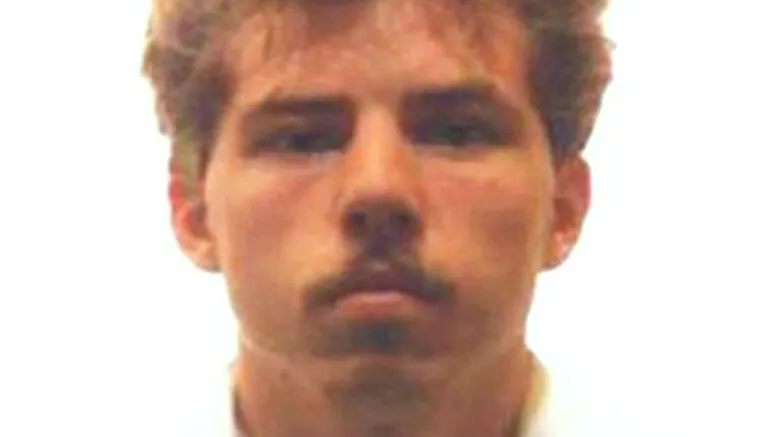Killer confessed believing he did not face retrial
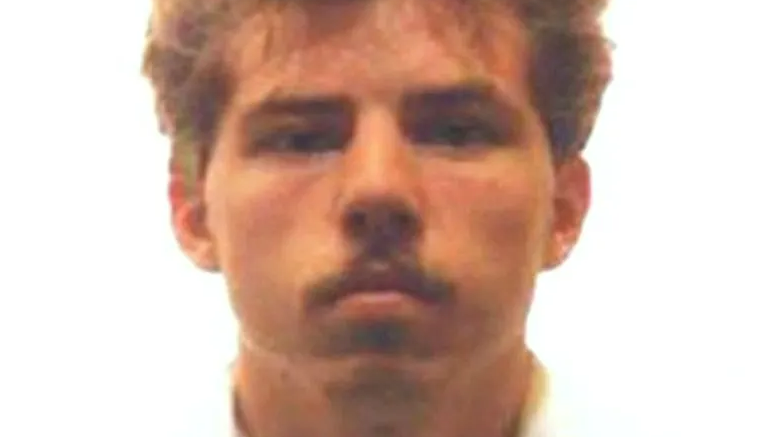
William Dunlop was jailed for life with a minimum of 17 years in 2006
- Published
A murderer has admitted he confessed to killing a woman believing he was safe from retrial because of the double jeopardy law, a Parole Board panel has heard.
William Dunlop strangled Julie Hogg, 22, and hid her beneath a bath at her home in Billingham, County Durham, in 1989 but juries twice failed to find him guilty.
He confessed to a prison guard in 1999, but could only be prosecuted again after Ms Hogg's family successfully campaigned to change the law. He was jailed for life with a minimum term of 17 years in 2006.
Dunlop had been seeking release from prison but, after hearing professionals were recommending he only be moved to open conditions, he amended his application.
On the second day of the partially public Parole Board hearing, Dunlop, 61, said his confession was purely for "selfish" reasons and not to help Ms Hogg's family.
The hearing is being conducted at an unnamed prison and being broadcast to the Royal Courts of Justice in London where Ms Hogg's mother Ann Ming and son Kevin Hogg are watching proceedings.
Dunlop, who previously told the panel he had been a "violent" and "hideous" person fuelled by drink and rage when he killed Ms Hogg, said he was "not comfortable" with the "monster" he used to be.
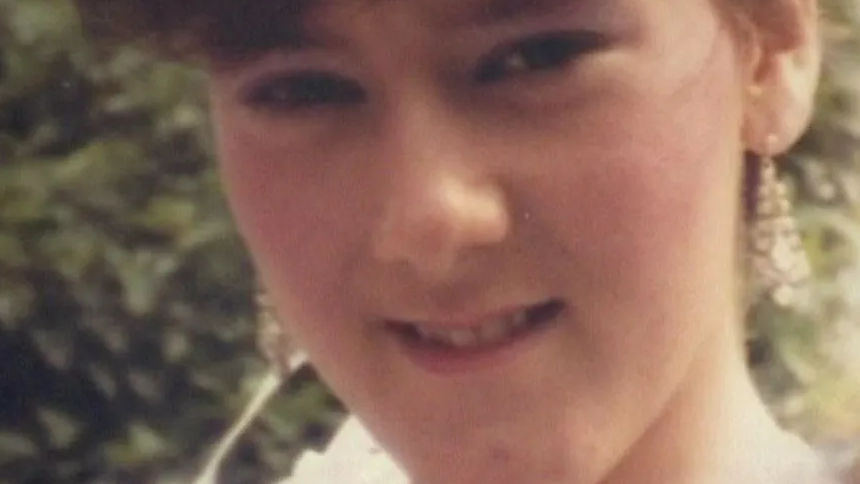
Mother-of-one Julie Hogg was murdered in 1989
He started the hearing by apologising for being "defensive" the previous day when talking about previous crimes, which included violently abusing girlfriends and a "murderous attack" on a love rival with a baseball bat.
It was while serving a seven-year sentence for that attack that he made his confessions to a prison guard.
"My confessing was a purely selfish thing," he said, adding he had "wrongly" thought confessing would "free" him, let him move on and "get help for the violence going on in my head".
He was asked if he made the admission knowing he was safe from being prosecuted again after his earlier acquittal.
"Yeah," Dunlop said, but adding he knew it was perjury for which he was subsequently jailed.
He told the panel he tried to implicate another person because he was only thinking about himself.
When asked how he had been able to lie for so long about the murder, Dunlop said: "With great difficulty."
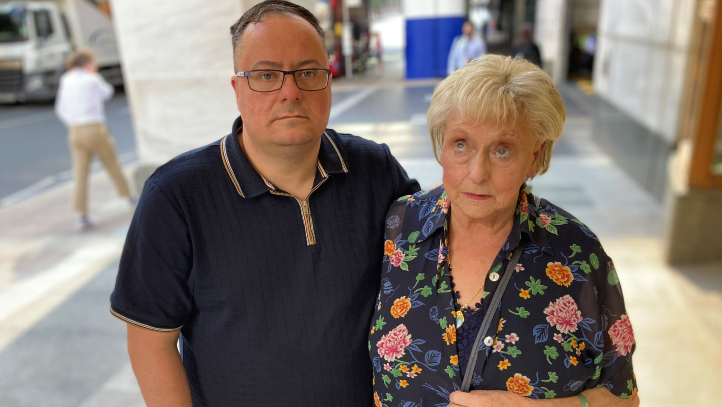
Julie Hogg's son Kevin and mother Ann Ming have attended the Parole Board hearing in London
He said he accepted the description of him as an "able liar" but told the panel he had engaged with treatment and gone "above and beyond" to "show who I am now" and "how I have moved away from it".
He said his violence was motivated by rejection, humiliation and his pride being hurt and he "never dealt with life's problems", adding: "From an early age [violence] was what I knew best."
Dunlop said the killing of Ms Hogg was about "pride" and him being "humiliated in front of people" and, had he been released from prison in the early 2000s, it was a "possibility" he could have gone on to kill more people.
When asked how he felt about his crimes, Dunlop's voice started to break and he told the panel: "I'm struggling to hold it together."
He said at the time he was "not a nice person" but the panel "wouldn't believe how far I have moved from violence".
"I wish I had never created all [those] victims but I did," Dunlop said.
He admitted there was a "sexual element" to the killing of Ms Hogg and he felt disgusted.
'Check on emotions'
When asked what he would say to Ms Hogg's family now, he said he wanted to apologise to them for all "these years and the years to come".
"I know it's of little consequence but I do regret what I have done to them," Dunlop said, adding his anger "destroyed so many lives" and Ms Hogg was a "lovely" and "really witty" woman.
He also said he had no animosity towards Ms Hogg's family and had no interest in resuming old relationships as his violence had "destroyed them beyond all repair".
The Parole Board will make a recommendation for Dunlop but the decision will be made by the secretary of state.
In 2022 a panel recommended he be moved to an open prison but that was refused.
Dunlop told the new panel he had felt angry at being turned down but quickly moved on to thinking about how to progress and make a new application, adding: "I can accept rejection now."
He said the potential "risks" of him being in the community revolved around forming relationships which he would avoid, keeping a "check on emotions", and substance misuse.
He said he had not drunk alcohol since 1997.
Dunlop said he had been told that if he was released into the community, he would have to "reign in how open and honest I am talking to people" about issues like emotions.
He said he had moved away from being an "angry man".
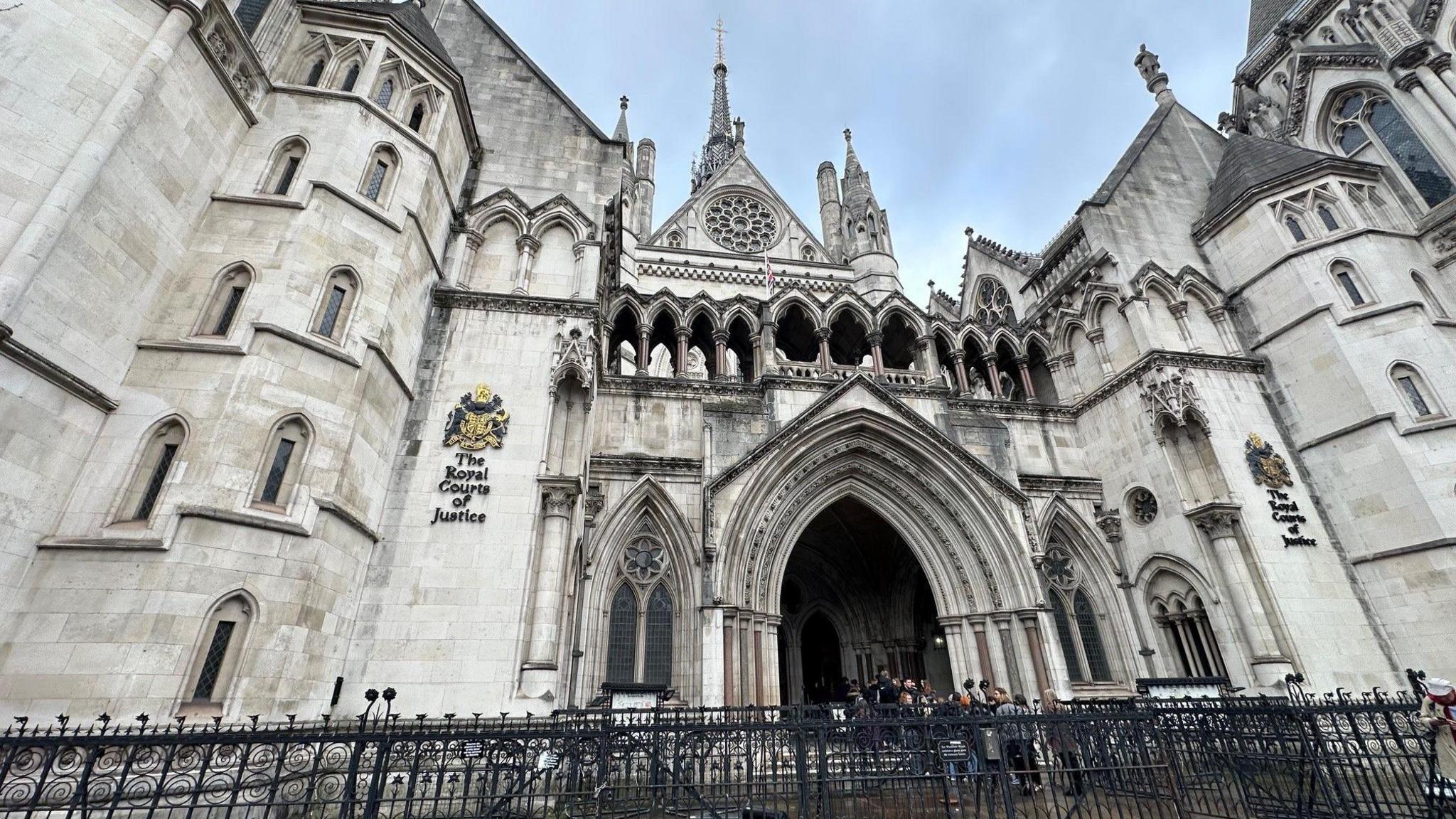
The Parole Board hearing is being broadcast at the Royal Courts of Justice
Dunlop said he was happier being a positive person and had been "shown a different way of dealing with things".
A psychologist, who spent 21 hours assessing Dunlop, told the panel she believed his change was sincere and that he had been "open and honest".
She said a difficult childhood was "no excuse" for his actions but did explain his aggression, deceitfulness and how he "viewed the world as a very hostile place", adding he learned to be good at violence and it enabled him to "fit in" with the other people in his life.
He was also driven by his "problematic core beliefs" which included a fear of rejection and not being in control, the psychologist said, but he had now completed multiple, intensive programmes and therapy courses to change his thinking.
'Genuinely felt reformed'
Dunlop's community offender manager, who had worked with him for four years, said he had done all the work possible in prison and the "next step" to test "how honest and open" he was being would be to put him in open conditions which had a "safety net".
She said she believed Dunlop "genuinely felt" he was reformed but until he was in new, challenging situations it would be impossible to say to what extent he had changed.
She also said Dunlop's behaviour in prison over the past decade had been "exemplary".
The hearing continues.
Correction 6 October 2025: This article originally referred to William Dunlop's "acquittals". It has been amended to say "acquittal" to make clear that, although there was no result in the first trial, he was only acquitted after a second trial in which the jury could not reach a verdict.
Follow BBC Tees on X,, external Facebook, external, Nextdoor and Instagram, external. Send your story ideas to northeastandcumbria@bbc.co.uk.
Related topics
- Published16 December 2024
